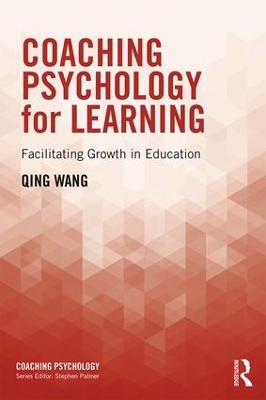Coaching Psychology
1 total work
The contribution of coaching psychology to educational fields is increasingly recognised. This timely book introduces coaching psychology as a facilitative method to support learning in different educational contexts.
Coaching Psychology for Learning: Facilitating Growth in Education is conveniently organised into three parts:
- Part One begins with a detailed account of educational paradigms, learning theories, and coaching psychology theories; it then reviews important studies of coaching applied to the educational field and identifies a number of gaps to which coaching psychology for learning can contribute;
- Part Two presents two empirical participatory studies of coaching psychology for learning, which draw from both doctoral research conducted in the UK and educational work in Mainland China; two original and evidence-based coaching models are also illustrated;
- Part Three consolidates the empirical evidence and original coaching models by exploring the nature of educational coaching, including the context, purpose, processes, and people and their interrelations.
The review of learning theories and coaching psychology theories in Part One enables the reader to gain a quick understanding of coaching psychology and its role in education, while the empirical studies in Part Two are particularly useful for undergraduate and postgraduate students, providing practical examples of how to conduct coaching psychology research in the field of education, in both the West and the East. The book also offers advice on design and implementation issues, which will benefit educational psychologists and coaching psychologists who wish to focus their professional practice in education.
Coaching Psychology for Learning is essential reading for any teacher, student or practitioner who wishes to become an educational coach to facilitate learning. It will appeal to coaches and coaching psychologists, including those in training and at postgraduate level, as well as professionals in educational settings, such as school leaders, counsellors and coaches, and educational psychologists.
